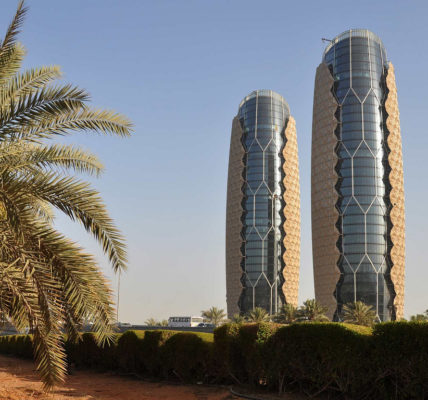Dubai, Abu Dhabi and Doha in top 40 cities for urban mobility
Oliver Wyman has compiled a benchmark of the best urban mobility systems across the world, with Dubai, Abu Dhabi and Doha all placing in the top 40 cities. Regulation, infrastructure, social impact and future readiness for tech are among the metrics used for evaluation.
The research was conducted in collaboration with the Institute of Transportation Studies at the University of California, Berkeley. The resultant top ten was dominated by Asian and European cities, while the Middle East made its first appearance in 24th with Dubai. Abu Dhabi followed as number 32, while Doha was two spots behind at number 34.
Dubai
According to Oliver Wyman, Dubai is actively involved in developing a world leading urban mobility landscape, which explains its presence as a regional leader.
An example here is the city’s testing of air taxis and drones for transportation. Air mobility is en route to becoming a sustainable industrial grade solution for cities globally, marking an appealing prospect for Dubai – a city that has declared its commitment to smart, environmentally friendly urban development.

Convenience and sustainability aside, air mobility adds another mode to a multifaceted transportation system that is ”gaining momentum with increased interest geared towards the creation of accessible, resilient and communicative cities,” according to the researchers.
Abu Dhabi
Placed at number 32 worldwide, Abu Dhabi’s claim to mobility leadership is its vast network of roadways. “Abu Dhabi’s roads offer some of the UAE’s highest quality, well-connected road networks and have the capacity to support current demand with little traffic,” according to the researchers.
The city is also lauded for its commitment to safety, with far-reaching camera coverage, strict traffic laws, strong enforcement, and a speed management strategy. In recent years, Abu Dhabi has also been ranked as the leading smart city across the Middle East and Africa. In 2018, McKinsey & Company noted the city’s advanced technology base – key to ushering in the era of smart mobility.
Dubai and Abu Dhabi’s presence on the list marks the UAE’s dominance in the regional mobility ecosystem. “There is evidence that the UAE is addressing critical mobility issues that have surfaced throughout the past few months. Such progress has allowed the UAE to maintain its position as one of the leading countries in urban mobility in the region,” explained Anshu Vats, Oliver Wyman’s Global Public Sector and Policy practice lead.
Doha
Where safety and sustainability put UAE cities on the map, Doha’s presence in 34th place can be pegged on its progress with self-driving vehicles. Just last year, the government of Qatar signed a deal with German auto manufacturer Volkswagen to roll out a fleet of autonomous shuttles and buses across Doha by 2022.
The goal is to build the “world’s first emission-free, electric and autonomous public transport system” – addressing most features of future mobility landscapes. A successful rollout might well propel Doha much further up the list.
Charging ahead
At the same time, other cities across the Middle East and the rest of the world are investing in ramping up their urban mobility, in light of steadily evolving demands from citizens and businesses, and particularly as Covid-19 is accelerating the transition to smart and safe mobility systems.
“Many cities around the world were at a tipping point, even before Covid-19, and while we won’t know the true impact on cities yet, the cities that ranked high are in a better position to meet future challenges,” explained Guillaume Thibault, partner at Oliver Wyman.






